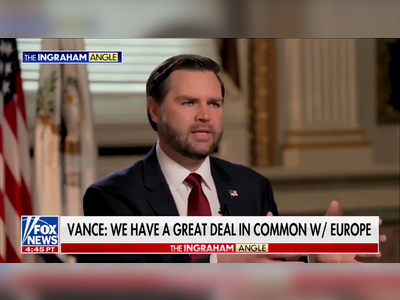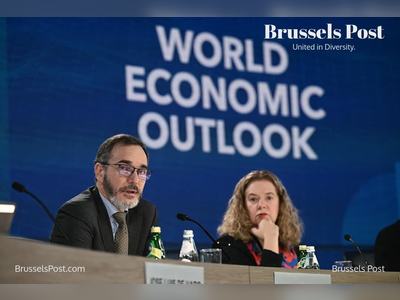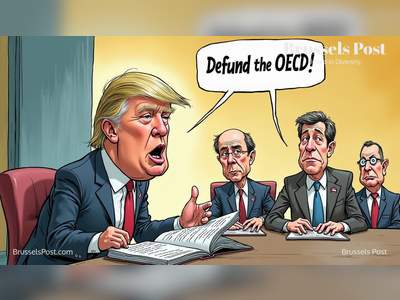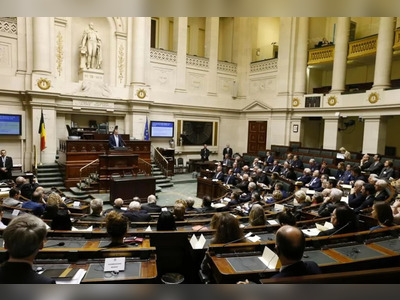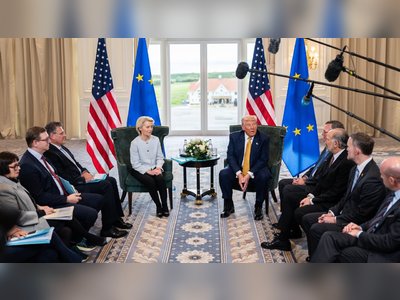Energy Efficiency Seen as Key to EU's Industrial Competitiveness Amid Volatile Markets
Energy Efficiency Movement highlights the challenges and opportunities in enhancing industrial resilience through improved energy strategies.
The Energy Efficiency Movement (EEM) has emphasized the importance of enhancing industrial competitiveness in the European Union by addressing the challenges posed by volatile energy markets and shifting political landscapes.
Executive Director Mike Umiker outlined that breaking free from these constraints is crucial for the EU's industrial sector, which has been affected by fluctuating energy prices and an uncertain macroeconomic environment.
EEM's report, released in May, identifies significant internal barriers to achieving energy efficiency within industries.
While many companies recognize the potential of energy efficiency as a competitive advantage, inconsistencies in energy policies — often altered by changes in government — pose additional difficulties.
According to Umiker, energy efficiency represents a domestic resource that can help reduce dependency on imports while enhancing the resilience of industrial operations.
The importance of energy efficiency extends beyond economic benefits; it is viewed as a necessary component to achieving net-zero emissions targets.
Umiker noted that rather than persuading industry leaders of its advantages, the focus should be on providing them with practical, data-driven pathways for implementation.
However, several misconceptions persist regarding the EU's Energy Efficiency First principle.
Dr. Tim Mandel, a research associate at the Energy Systems department at Fraunhofer ISI, identified three prevalent misunderstandings among stakeholders in the energy sector.
The first misconception is the notion that the principle is merely a political slogan.
In reality, since the recast Energy Efficiency Directive, EU member states are required to demonstrate that energy efficiency options have been systematically considered when planning investments, as reported in their National Energy and Climate Plans (NECPs).
Secondly, some argue that the principle prioritizes energy efficiency over other energy solutions, such as renewable resources or grid infrastructure.
Mandel clarified that energy efficiency is prioritized when it provides greater societal benefits, and that cost-benefit analyses can justify investments in other energy domains if they prove more advantageous.
Lastly, there is a belief that implementing the Energy Efficiency First principle leads to increased costs.
Contrary to this notion, research indicates that energy efficiency solutions often reduce infrastructure needs and fuel imports, ultimately minimizing total system expenditures.
Umiker suggested that a lack of strategic courage in decision-making hampers broader adoption of energy efficiency initiatives in the industrial sector.
He pointed out that funding options are accessible, technology is available, and knowledge about effective energy strategies is widespread.
What remains is the willingness to prioritize energy efficiency, even when the payback period is typically under five years.
The European Climate Neutrality Observatory (ECNO) has identified a shortfall in the EU's progress toward its 2030 energy efficiency targets, amounting to energy use equivalent to that of Belgium.
Experts advocate for stronger enforcement of existing regulations and accountability measures to enhance the implementation of national energy efficiency initiatives.
The adoption of the Energy Taxation Directive has also been highlighted as essential for reducing incentives that support fossil fuel industries.
In terms of supporting initiatives, Eike Velten from ECNO commented on the European Commission's exploration of an EU-wide white certificate scheme designed to facilitate investments in energy efficiency, noting the potential risks associated with misallocation of resources toward fossil-based investments.
Umiker indicated that while private sector funding will drive investments in energy efficiency, public sector involvement remains critical.
He stressed that strategic public-private partnerships could mobilize substantial capital by aligning objectives, sharing risks, and matching public incentives with private investments.
Furthermore, he underscored the role of public procurement in establishing energy efficiency standards which can guide market trends toward better energy practices.
The necessity of reducing energy consumption in order to diminish dependency on Russian gas has been reiterated in the EU’s REPowerEU plan.
As articulated by MEP Niels Fuglsang, energy savings stand as the most immediate and cost-effective means of achieving this goal, framing the pursuit of energy efficiency as a vital but often overlooked aspect of energy policy.
Executive Director Mike Umiker outlined that breaking free from these constraints is crucial for the EU's industrial sector, which has been affected by fluctuating energy prices and an uncertain macroeconomic environment.
EEM's report, released in May, identifies significant internal barriers to achieving energy efficiency within industries.
While many companies recognize the potential of energy efficiency as a competitive advantage, inconsistencies in energy policies — often altered by changes in government — pose additional difficulties.
According to Umiker, energy efficiency represents a domestic resource that can help reduce dependency on imports while enhancing the resilience of industrial operations.
The importance of energy efficiency extends beyond economic benefits; it is viewed as a necessary component to achieving net-zero emissions targets.
Umiker noted that rather than persuading industry leaders of its advantages, the focus should be on providing them with practical, data-driven pathways for implementation.
However, several misconceptions persist regarding the EU's Energy Efficiency First principle.
Dr. Tim Mandel, a research associate at the Energy Systems department at Fraunhofer ISI, identified three prevalent misunderstandings among stakeholders in the energy sector.
The first misconception is the notion that the principle is merely a political slogan.
In reality, since the recast Energy Efficiency Directive, EU member states are required to demonstrate that energy efficiency options have been systematically considered when planning investments, as reported in their National Energy and Climate Plans (NECPs).
Secondly, some argue that the principle prioritizes energy efficiency over other energy solutions, such as renewable resources or grid infrastructure.
Mandel clarified that energy efficiency is prioritized when it provides greater societal benefits, and that cost-benefit analyses can justify investments in other energy domains if they prove more advantageous.
Lastly, there is a belief that implementing the Energy Efficiency First principle leads to increased costs.
Contrary to this notion, research indicates that energy efficiency solutions often reduce infrastructure needs and fuel imports, ultimately minimizing total system expenditures.
Umiker suggested that a lack of strategic courage in decision-making hampers broader adoption of energy efficiency initiatives in the industrial sector.
He pointed out that funding options are accessible, technology is available, and knowledge about effective energy strategies is widespread.
What remains is the willingness to prioritize energy efficiency, even when the payback period is typically under five years.
The European Climate Neutrality Observatory (ECNO) has identified a shortfall in the EU's progress toward its 2030 energy efficiency targets, amounting to energy use equivalent to that of Belgium.
Experts advocate for stronger enforcement of existing regulations and accountability measures to enhance the implementation of national energy efficiency initiatives.
The adoption of the Energy Taxation Directive has also been highlighted as essential for reducing incentives that support fossil fuel industries.
In terms of supporting initiatives, Eike Velten from ECNO commented on the European Commission's exploration of an EU-wide white certificate scheme designed to facilitate investments in energy efficiency, noting the potential risks associated with misallocation of resources toward fossil-based investments.
Umiker indicated that while private sector funding will drive investments in energy efficiency, public sector involvement remains critical.
He stressed that strategic public-private partnerships could mobilize substantial capital by aligning objectives, sharing risks, and matching public incentives with private investments.
Furthermore, he underscored the role of public procurement in establishing energy efficiency standards which can guide market trends toward better energy practices.
The necessity of reducing energy consumption in order to diminish dependency on Russian gas has been reiterated in the EU’s REPowerEU plan.
As articulated by MEP Niels Fuglsang, energy savings stand as the most immediate and cost-effective means of achieving this goal, framing the pursuit of energy efficiency as a vital but often overlooked aspect of energy policy.
AI Disclaimer: An advanced artificial intelligence (AI) system generated the content of this page on its own. This innovative technology conducts extensive research from a variety of reliable sources, performs rigorous fact-checking and verification, cleans up and balances biased or manipulated content, and presents a minimal factual summary that is just enough yet essential for you to function as an informed and educated citizen. Please keep in mind, however, that this system is an evolving technology, and as a result, the article may contain accidental inaccuracies or errors. We urge you to help us improve our site by reporting any inaccuracies you find using the "Contact Us" link at the bottom of this page. Your helpful feedback helps us improve our system and deliver more precise content. When you find an article of interest here, please look for the full and extensive coverage of this topic in traditional news sources, as they are written by professional journalists that we try to support, not replace. We appreciate your understanding and assistance.


